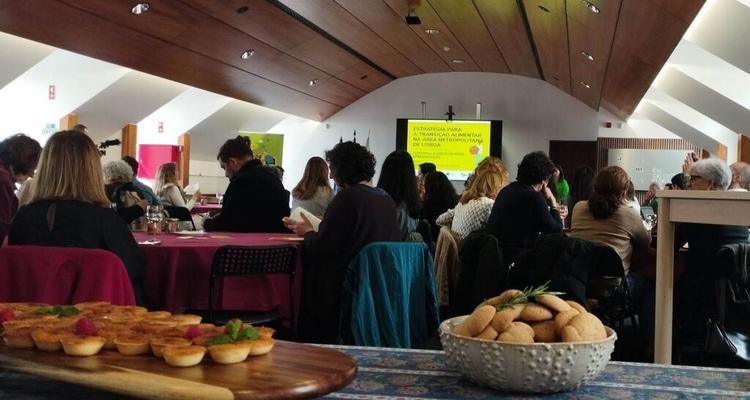
A bottom-up strategy for food transition is now ongoing at the Lisbon Metropolitan Area
FoodLink is an informal network for food transition in the Lisbon Metropolitan Area. It was officially established in 2022, building on earlier efforts that began in 2017. With support from FoodCLIC, the network has significantly expanded and strengthened, and now brings together 40 partner organizations representing key areas of the metropolitan food system.
In its first Action Plan (2023–2024), FoodLink focused on developing the Strategy for Food Transition in the Lisbon Metropolitan Area (SFT–LMA). The strategy underwent a public consultation in summer 2024 and was officially approved by the Metropolitan Council in early 2025. It was formally presented in March 2025 at a ceremony organized by the Lisbon Metropolitan Area.
At the heart of this strategy is a strong belief: food transition is essential for sustainable development. It involves transforming the way we produce, distribute, and consume food, adopting innovative practices and empowering communities to choose healthier, more sustainable, and inclusive diets. This transition creates wide-reaching benefits for the economy, public health, the environment, climate resilience, and social well-being.
The SFT–LMA outlines three core goals:
- Build a resilient and sustainable food system: Connect soil, water, biodiversity, and energy to ensure access to healthy, inclusive food for all.
- Promote a circular, local economy: Encourage climate adaptation, job creation, public health, and social equity.
- Preserve the Mediterranean diet as cultural heritage: Support innovation, training, food literacy, and digital transformation.
The vision for 2030
By the end of the decade, 15% of the Lisbon Metropolitan Area’s food supply could come from local sources, powered by:
- Sustainable production methods such as organic farming, agroecology, and responsible fishing
- Smart approaches to water use, soil regeneration, energy efficiency, and climate adaptation
- Low-carbon distribution models and short supply chains that enhance food security and social inclusion
The strategy also highlights the value of cultural and gastronomic tourism, aiming to position the Lisbon Metropolitan Area as a leader in socio-ecological and economic transformation. Strengthening connections between urban, rural, and coastal areas is a key part of this vision.
FoodCLIC’s role
FoodCLIC plays a vital role in supporting this transition by bridging local and regional efforts, particularly in the municipality of Cascais. The focus is on working with vulnerable communities and engaging local and regional partners to co-develop an inclusive and integrated food transition strategy.
- Written by our guest author and consortium member Rosário Oliveira (ICS-ULisboa)
See the public presentation of the SFT–LMA here (in Portugese)
Learn more: Strategy for Food Transition in the Lisbon Metropolitan Area (in Portugese)
Publishing date:
FOODCLIC. We are connecting people, food, policy & places.
FoodCLIC is a four-year project funded by the EU. The project runs from September 2022 to February 2027. The acronym FoodCLIC stands for 'integrated urban FOOD policies – developing sustainability Co-benefits, spatial Linkages, social Inclusion and sectoral Connections to transform food systems in city-regions

